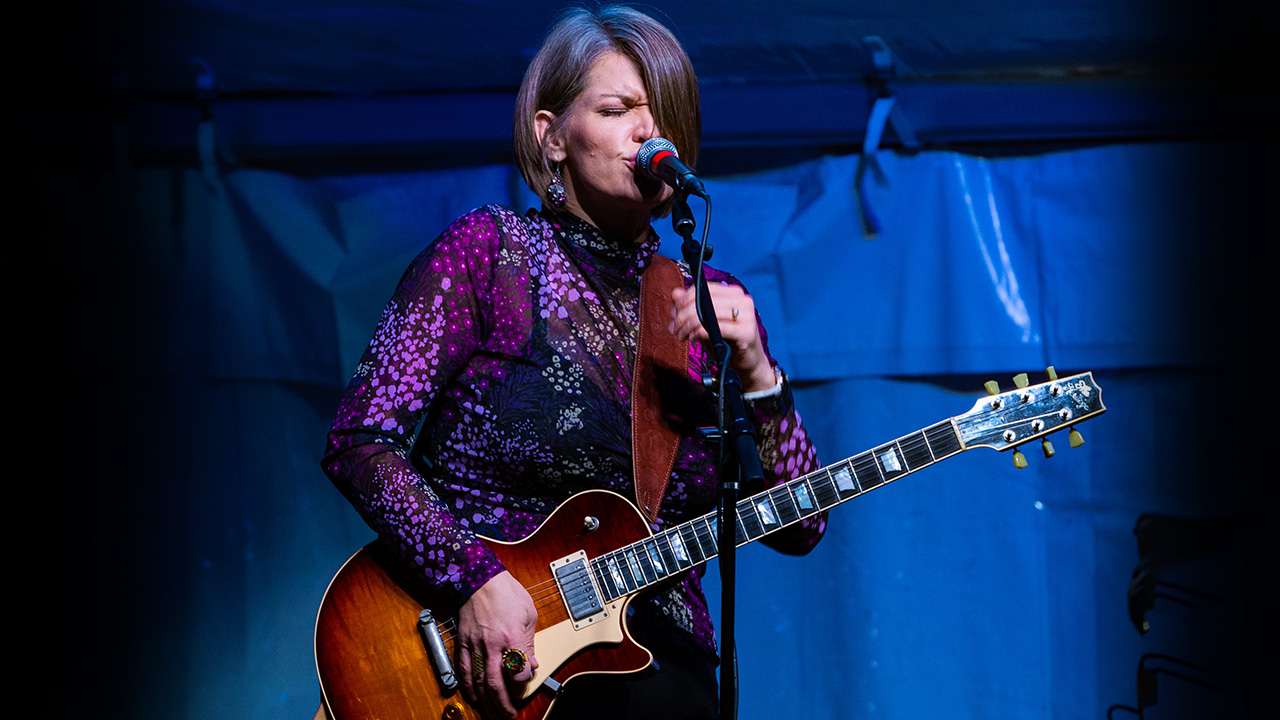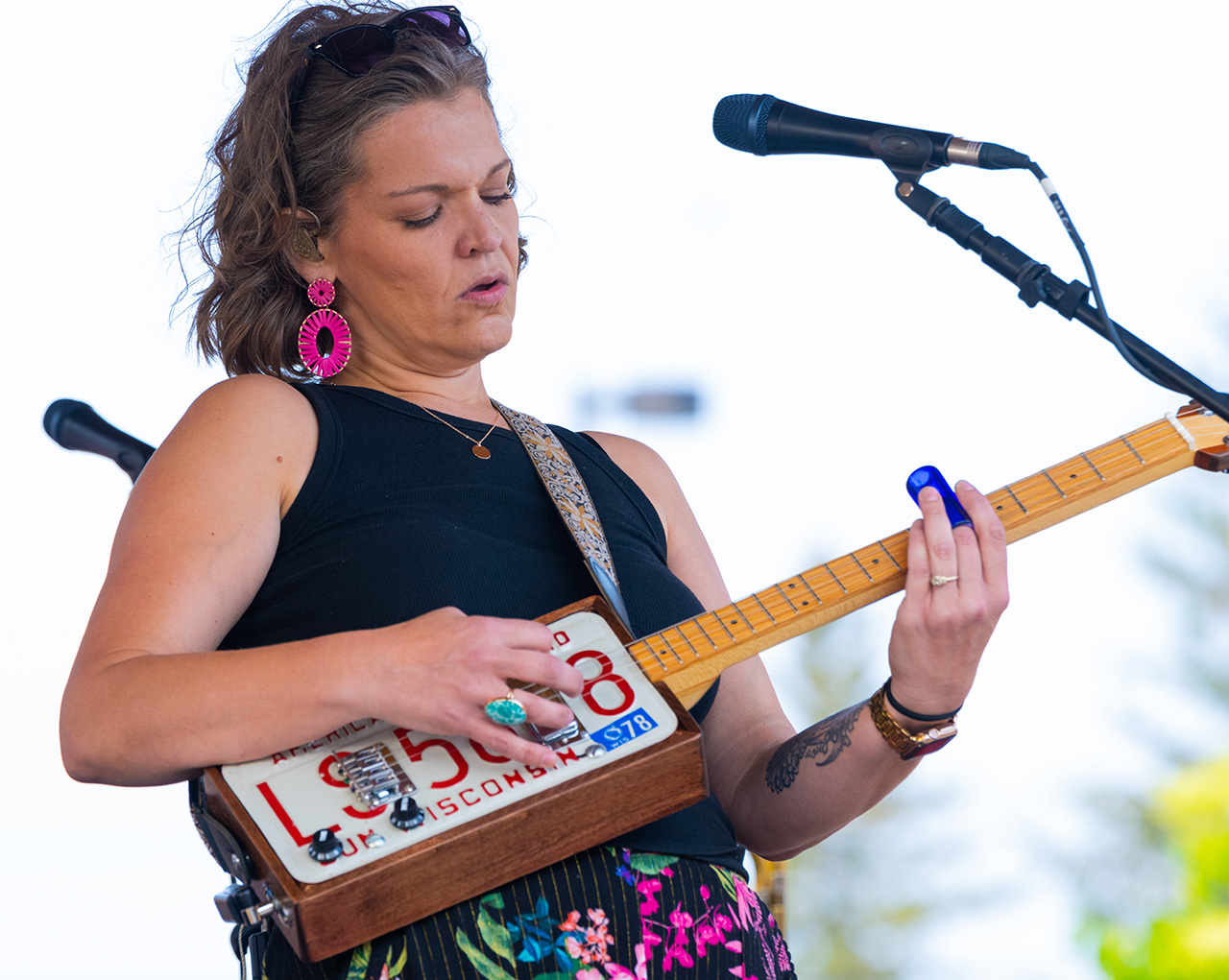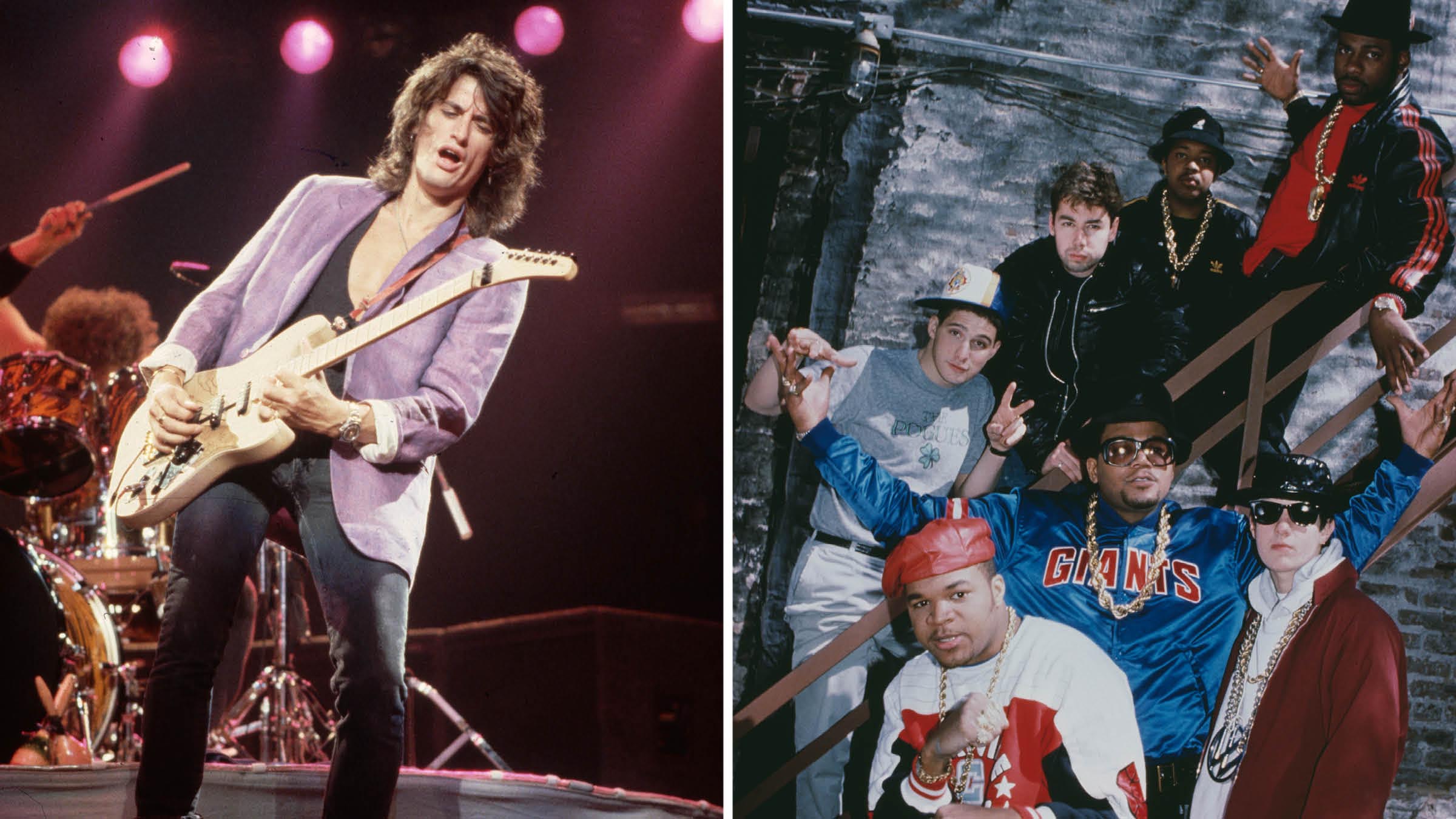“I watched a lot of people chase guitars and amps to try to find themselves, like, ‘No, it’s the next guitar. Maybe that will be the one.’ I didn’t do that”: How Joyann Parker discovered that tone is in the fingers – and music can change minds
The Americana singer-songwriter has dealt with impostor syndrome, panic attacks, depression and the fear of change (even when it’s positive). Putting it all into her art has shown her she’s not alone, and she’s motivated to share the lesson far and wide

All the latest guitar news, interviews, lessons, reviews, deals and more, direct to your inbox!
You are now subscribed
Your newsletter sign-up was successful
This article is part of Guitar World’s series of interviews and features with artists addressing and raising awareness around themes of mental health, particularly as they relate to musicians.
Watching Joyann Parker perform is an exercise in exuberance. Her music is a mix of blues, soul, R&B, rock, gospel and all styles in between, and she delivers with fire and abandon. Onstage and in the studio, she’s in her element – passionate and in the moment.
A deep dive into some of her lyrics, however, reveals a different story, which she shares as part of her mental health healing, and in hopes of helping others feel less alone.
Parker grew up in Wisconsin, where she began singing at age 2 and studying piano at 4. “It was such a part of me,” she says. “I grew up in a really small town where I was one of the only good piano players, so I was always playing and singing at weddings and funerals. I was classically trained, so it’s totally different than what I do now.”
After high school, she attended the University of Wisconsin - La Crosse and graduated with a degree in instrumental education, which led to teaching music and band in schools. In 2013, while living in Minneapolis, she fell in love with blues music and discovered a new means of expression: guitar.
With encouragement from guitarist Mark Lamoine, who soon became her musical partner, she began exploring new ways of telling her stories and showcasing her voice.
She has released three albums, each to glowing reviews. Her debut, Hard to Love, came out in 2018. In 2021 she released Out of the Dark, produced by Kevin Bowe, which peaked at No. 11 on the Billboard Blues Albums chart. Her latest, Roots, also produced by Bowe, was released in September 2023 and quickly reached the Top 10.
All the latest guitar news, interviews, lessons, reviews, deals and more, direct to your inbox!
Parker and her band – Lamoine, keyboardist Tim Wick, bassist Chris Bates, drummer Bill Golden and saxophonist Scott Graves – stay busy playing and selling out headline gigs, gospel shows, The Music of Patsy Cline tribute performances and her Classic Ladies of Country Revue. She and Lamoine also perform as an acoustic duo.
Parker’s guitar parts on Roots were recorded using a cigar-box-style four-string built for her by a fan, along with Bowe’s mid-2000 Telecaster and nylon-string acoustic, and Lamoine’s 12-string Rickenbacker 660, delivered through Bowe’s Tweed Deluxe and Deluxe Reverb.
A big believer in keeping things simple and organic, her pedalboard features two Soul Food pedals and a tuner. Live, she uses her 2014 custom Heritage H-150, Heritage H-535, 2020 Guild F-55, 2022 Gibson L-00, 2016 Mexican Jazzmaster, and Lamoine’s Rickenbacker 660, through the 1964 Fender Deluxe Reverb she’s owned since she began playing guitar.
The transition to guitar was really weird… I was able to play other instruments very easily, but my brain could not put piano and guitar together
What were your goals going into Roots?
“The number one goal is always to make something I’m proud of; that I can look back on and go, ‘That’s what I wanted.’ You can get caught up in, ‘Are people going to like it?’ But ultimately, you have to create art that you’re proud of and that you love. That goal was met.
“Of course, you always want people to hear it. You want to play live. So it’s about getting more attention and more gigs, which we did. What’s Good For You was a No. 1 iTunes song in the U.K. and made it onto the Top 10 on Billboard’s Blues Albums chart.
“Having no agent, this is all grassroots – so I’m always very proud and so thankful when it happens. We’ve had a lot of attention on Spotify, and CD and vinyl sales have been great at shows.
“I’m so proud of my band too. Whatever style I throw at them, they can do it. I’m proud that I have stuck to being true to myself. That’s what Roots is about. I don’t feel like I have to be in a box. I’m very comfortable with creating the music I want to create, no matter what it is. It sounds like me, and that’s most important.”
It’s hard to get started and hard to keep going because it requires facing a lot of demons. I had to find the places where I was at fault in my life and forgive myself
Does your piano background inform your guitar playing?
“Yes, because I hear themes and things that I probably wouldn’t otherwise. But the transition to guitar was really weird for me. I was able to play other instruments very easily, but my brain could not put piano and guitar together.
“In a way that helped me, because I gave myself up to it. I almost had the guitar teach me. I didn’t want that classical training to get in my way.
“I had a great piano teacher. She taught me how to feel through my fingers, how to express myself through the way I touched the keys. That was a real blessing, and it was something I could apply to guitar.
“I understood that, ‘If I use this part of my finger, it sounds different. If I touch the strings this way, it sounds different.’ The feeling is so important, so I didn’t want the other knowledge to block that. I wanted to learn to let go.”
What helped you most in that process?
“I dedicated myself to being around great musicians. Mark led two jams when we started this band. He’s the reason I picked up the guitar. I attended Mark’s blues jams every week for a year, and I was under great tutelage. They taught me a lot about expressing yourself through the instrument, and I put that above the technical aspects.
“I watched a lot of people chase guitars and amps to try to find themselves, like, ‘No, it’s the next guitar. Maybe that will be the one.’ I didn't do that. I learned from those guys that it doesn't matter the equipment you have; it’s how you use your fingers and your touch and get your emotions out.
“One of the old blues guys said, ‘I can hear what you’re saying, but I don’t know how you feel.’ That always struck me. I’m all about expressing myself and making others feel it.”
You speak and sing openly about battling anxiety, panic attacks, and depression. For example, on Going Under you say, ‘My mind is now my enemy.’ How deep in that dark place were you; and how did you begin healing?
“My children were the final thing that made me go, ‘I need to get some help and some therapy.’ From my teen years on, there were times I wanted to take my own life – and tried.
One day my therapist said to me, ‘You were given a gift that other people deserve to hear. It’s your responsibility to give it to them.’
“There were ups and downs throughout the years. It took learning how to heal honestly; dealing with things I needed to deal with spiritually, mentally, and emotionally; and getting help when I needed it. Through therapy, my faith, and my husband, who has been great over the years, it’s not as frequent as it used to be.
“I talk about it a lot onstage, I play those songs and I try to encourage people with their healing. I have done a lot of work. It’s hard to get started and hard to keep going because it requires facing a lot of demons. I had to find the places where I was at fault in my life and forgive myself.”

Forgiving ourselves is sometimes more difficult than forgiving others.
“Yes – but you have to. But you also have to admit it. You have to go, ‘This is how I got here; this is what put me in this place.’ You have to find those things in order to heal from them. Doing that really turned a corner for me. That’s what Out of the Dark is about.
What part has music played in that journey?
“I’ve always used music to get beyond things, even before I began writing songs. When I was a kid, I would go to the piano and play Beethoven to get out what I going through. I also fought imposter syndrome, thinking, ‘I don’t know what I’m talking about. I don’t deserve to be up here. I’m not worthy of standing here singing.’
“When you start healing, it’s hard, because you’re trying to change. It doesn’t matter that it’s for the better – your mind and body feel like it’s not safe, and so you start hearing these lies and you kind of go back to where you were.
“I had to fight through all those things. I had to look at it holistically, address what made me feel the way I did, and fix the things that needed fixing.
“One day my therapist said to me, ‘You were given a gift that other people deserve to hear. It’s your responsibility to give it to them.’ That was a turning point. It changed my mindset to: ‘I have a responsibility to help people. I have been given so much and I want to help others.’
“For so long I had this ceiling over me – ‘Don’t get above your raising… don’t succeed too much, because you’re going to look like…’ ‘People are going to say…’ I got over all that and realized that I deserve to heal, I deserve to be happy, and I deserve to be successful at what I do. Because the healthier I am, the healthier my family is, and the more I can help others.
I want to help the people I’m singing to move forward and become better. That’s why I want my music to be heard
“It’s a long journey. I’m still not there. But I wanted to do the hard work, and that changed my life. So I always try to help people with my songs, and I’m always happy to talk.
“I want to help the people I’m singing to move forward and become better. That’s why I want my music to be heard. That’s one of my main missions in what I do.”
- Roots is out now.
Resources
Alison Richter is a seasoned journalist who interviews musicians, producers, engineers, and other industry professionals, and covers mental health issues for GuitarWorld.com. Writing credits include a wide range of publications, including GuitarWorld.com, MusicRadar.com, Bass Player, TNAG Connoisseur, Reverb, Music Industry News, Acoustic, Drummer, Guitar.com, Gearphoria, She Shreds, Guitar Girl, and Collectible Guitar.





